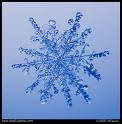I'm about 2/3 of the way through "The Field" (tis a little thing, only about 225 pages), and I'm loving it. I haven't gotten to the "now I'll tie all these ideas together into one coherent whole" chapter yet, but I can see where McTaggert is going with it. Basically, the whole thing comes down to what is called the Zero Point Field (yes, same Zero Point mentioned by the character Syndrome in Pixar's "The Incredibles"), a background energy state in quantum physics calculations which classical physicists are aware of but simply ignore. A great many scientists, going all the way back to the 1960s, have postulated that the ZPF can be used to explain a whole host of phenomena that give classical science fits, everything from how memories are stored in the brain to why momentum and inertia exists to how bodies grow from a single cell to an entire complicated being.
The problem for classical scientists is that these postulations, if taken to their logical end, lead to ideas that smack of either science fiction or mysticism: juvenile plants giving off energy fields that mimic the size and shape of adults, homeopathic remedies that contain no medicine but only the "memory" of it, imprinted somehow upon the water, memories that do not exist in cells but instead reside in an energy field which runs throughout and around the body, energy transfers that happen at faster-than-light speeds and aren't affected by distance, and so on.
But the biggest problem of all for the empiricists is that the entire concept of the ZPF flies in the face of the Newtonian/Cartesian worldview. No longer is the world a mechanical device, separate parts clicking away in predictable patterns. Instead the entire physical universe is nothing more than a matrix of interconnected contractions within an all-pervasive energy field, one that, if disturbed at any one point, affects all of it, not like ripples in a pond but like sliding blocks in a giant puzzle, a single shift instantly affecting all others. Worst of all for them, it seems like thought and intention have replaced cause and effect as the prime movers in this ZPF universe. If these postulations are true, the physical universe does not exist as an entity in and of itself, but as a projection of Mind and of expectation.
The vast majority of the experiments and hypotheses in "The Field" are not new. Most go back a generation or more, and the book itself came out almost a decade ago, so it should be interesting to do some research and discover how things have progressed since 2001. These ideas give me a great deal of hope. I have observed first-hand that there is a slow but steady movement in religious thought away from entrenched ideas and toward experience. Now I see a similar movement in science. If these two groups can get together, I believe that holds far more hope for our future as a species and as an ecosystem than anything else.
More to follow once I finish the book.
jcs

you probably know but - SF is back.....!!! :o)
ReplyDelete!!!!!!!!!!!
ReplyDeleteOh thank God, pun intended!